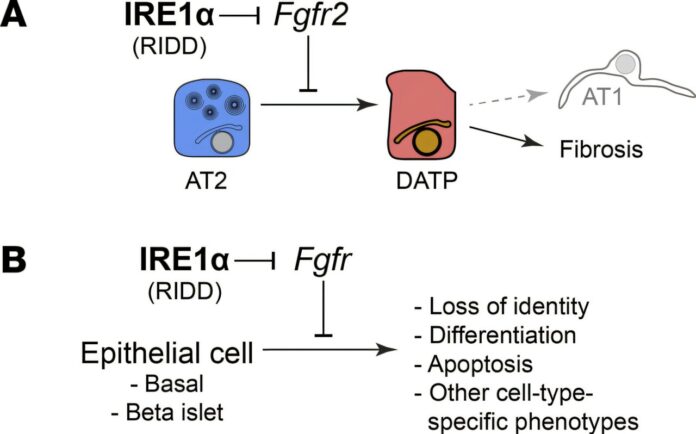Researchers at Umeå University, Sweden, have discovered a previously unknown type of connective tissue cells that surround cancer cells in pancreatic tumors. The newly discovered cells counteract tumor development and may therefore be a target for research into new treatments for pancreatic cancer, which is one of the deadliest forms of cancer. The work is published in the journal Cancer Research.
“We are still a long way from treatment, but this may show a viable path for further research,” says Daniel Öhlund, associate professor at Umeå University and leader of the current study.
Pancreatic cancer is one of the cancers with the worst prognosis for survival. This is partly because it is often detected late, and partly because it responds poorly to traditional treatments with chemotherapy.
Researchers at Umeå University have investigated the connective tissue cells that surround the cancer cells in pancreatic cancer. These cells, called cancer-associated fibroblasts (CAF), play an important role in how the cancer develops. Several types of CAF stimulate the growth of cancer cells and contribute to the cancer cells being resistant to current chemotherapy treatments, making the cancer more aggressive and difficult to treat.
What the Umeå researchers have found is a previously unknown subgroup of CAF that has opposite properties. This group can instead hold back the cancer and open the way for the body’s own immune cells to attack the cancer cells. However, this newly discovered group, called interferon response cancer-associated fibroblasts (ifCAF), is in the minority among different CAF around the cancer cells.
“The opening we see is whether it would be possible to stimulate the formation of this newly discovered and kinder cell type around the cancer cells at the expense of the connective tissue cells that make the cancer aggressive,” says Öhlund.
The researchers at Umeå University are now proceeding to study potential drug substances that can promote the formation of ifCAF cells so that they increase in number and thus slow down the development of the disease. If successful, it could become a target for the development of future drugs.
About half a million people worldwide are diagnosed with pancreatic cancer every year.
More information:
Joshua Cumming et al, Dissecting FAP+ Cell Diversity in Pancreatic Cancer Uncovers an Interferon-Response Subtype of Cancer-Associated Fibroblasts with Tumor-Restraining Properties, Cancer Research (2025). DOI: 10.1158/0008-5472.CAN-23-3252
Umea University
Citation:
Newly discovered cells in connective tissue open up strategy against pancreatic cancer (2025, April 23)
retrieved 24 April 2025
from https://medicalxpress.com/news/2025-04-newly-cells-tissue-strategy-pancreatic.html
This document is subject to copyright. Apart from any fair dealing for the purpose of private study or research, no
part may be reproduced without the written permission. The content is provided for information purposes only.



